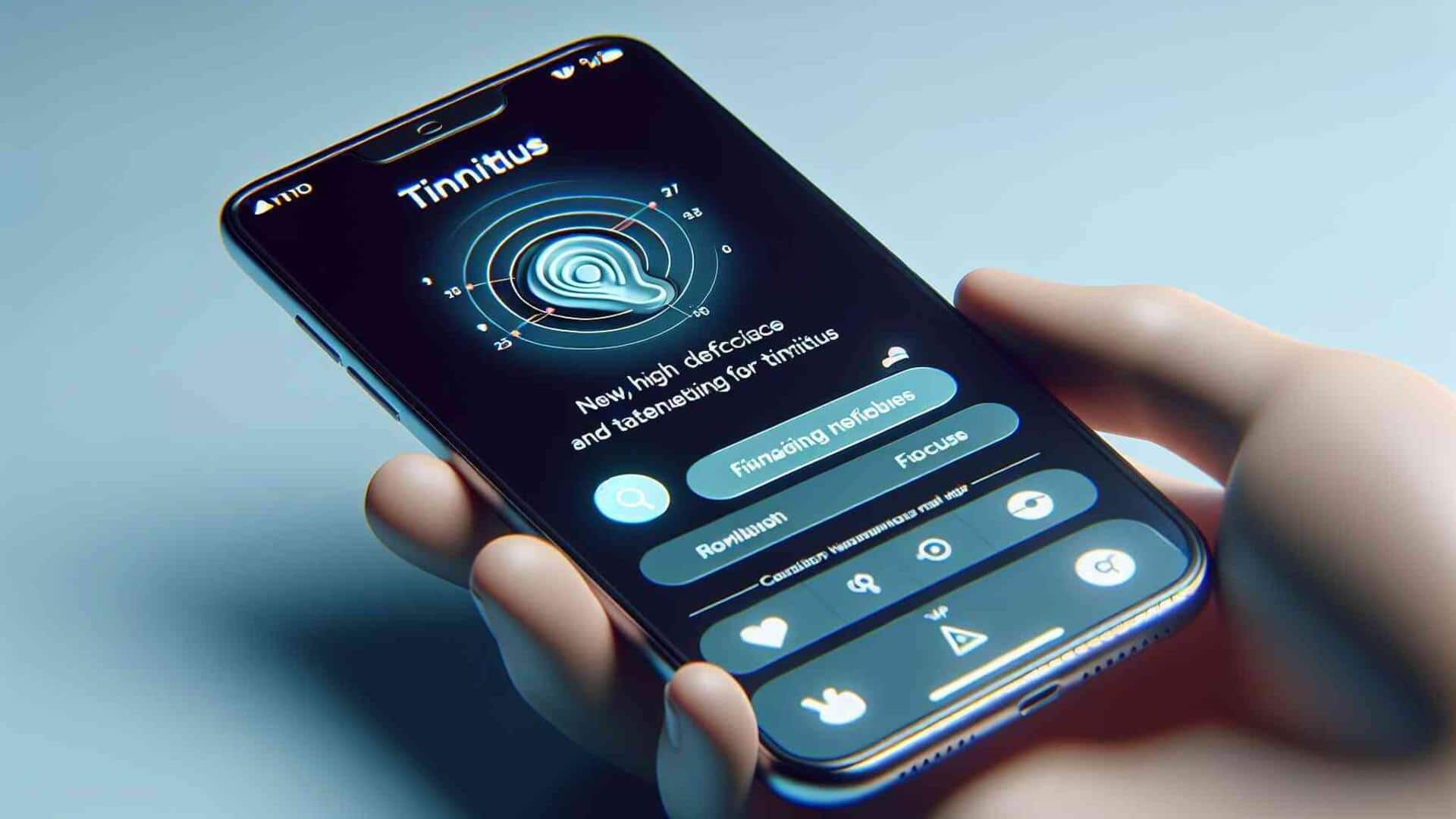
Meet MindEar, an app offering hope for tinnitus patients
What's the story
A team of researchers from Australia, New Zealand, France, and Belgium has created MindEar. It is a revolutionary smartphone app designed to help people manage their tinnitus symptoms. This app combines cognitive behavioral therapy (CBT), relaxation exercises, mindfulness, and sound therapy to offer an affordable and accessible alternative to traditional treatments. Early trials with tinnitus patients have shown encouraging results, as nearly two-thirds of participants experienced a big improvement after using the app for 16 weeks.
Disease
What is tinnitus?
Tinnitus is a medical condition that affects one in every four people globally and has no cure. It is usually caused by an underlying problem, such as an ear injury, age-related hearing loss, or some issue with the body's circulatory system. Patients experience ringing or buzzing sounds in one or both ears that may either be constant or come and go.
Details
Advancements in tinnitus management through MindEar
MindEar's unique approach aims to train the brain to put less focus on the ringing caused by tinnitus, and more on reducing stress responses. According to a study published in Frontiers in Audiology and Otology, the app could potentially cut the treatment period in half, from 16 to eight weeks, when used alongside online psychologist support. MindEar is now available for individual trials on smartphones.
Study
What did the study show?
In the above-mentioned study, 28 participants were split into two groups. One group used MindEar's virtual coach for 10 minutes every day for eight weeks, while the other group got similar instructions through four half-hour video calls with a clinical psychologist. The results showed that six participants using the app alone and nine who also had video calls experienced a clinically significant decrease in tinnitus-related distress.
Cost
MindEar wants to make CBT more affordable
MindEar delivers CBT through a chatbot, giving users the power to take control of their tinnitus symptoms. Dr. Fabrice Bardy, the study's first author from the University of Auckland, said, "What we want to do is empower people to regain control." The app aims to make CBT more accessible and affordable for tinnitus sufferers since traditional therapy can be pricey and hard to come by.
Future
What's next?
A wider clinical trial of MindEar is set to launch with University College London (UCL) hospital. Dr. Lucy Handscomb of the UCL Ear Institute, a member of the trial, said that in-person help for tinnitus is not easily accessible and patients often experience increased anxiety while waiting for therapy. She believes that MindEar could be a valuable complement to traditional tinnitus therapy rather than a replacement.